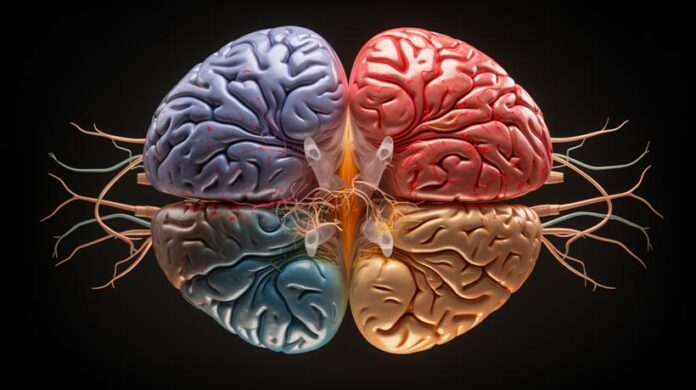The H.A.L.T. concept caught my attention today as I was on my daily quest for knowledge. Like a sponge, I absorb information, and this concept immediately sparked my interest.
Writing about and exploring a new idea through words helps me truly digest and understand it. Being a firm believer in the power of shared knowledge, I couldn’t keep this intriguing concept to myself. I thought, “This could be a lifeline for someone out there.” And so, the idea for this blog post was born.
I encountered the H.A.L.T. principle in an article titled ‘A Time To Be Careful’ from Word For Today. This thought-provoking piece explores the pitfalls of complacency following triumphs. It uses King David’s biblical narrative as a striking case study, demonstrating how letting one’s guard down after a series of victories can lead to dire consequences. It emphasises that vigilance and humility are paramount even in the wake of success.
What Is The H.A.L.T. Concept
The H.A.L.T. concept is an acronym for Hungry, Angry, Lonely and Tired. Is a tool that’s been widely adopted in the fields of mental health and addiction recovery. It’s a practical approach that encourages self-awareness and self-care, helping us to avoid potential pitfalls when we’re in these high-risk states.
The origins of the H.A.L.T. concept are somewhat elusive, but its use in addiction recovery is well-documented. For instance, a study by Dennis C. Daley and colleagues discusses using behavioural interventions, such as the H.A.L.T. concept, in addiction recovery.
The power of H.A.L.T. is the inner bell that sounds within us for self-awareness. By recognising when we’re Hungry, Angry, Lonely, or Tired, we can take steps to address these states. This, in turn, reduces the likelihood of making poor decisions or engaging in harmful behaviours. It’s a testament to the power of self-awareness and self-care in maintaining mental health and well-being.
The Vulnerability of Human States: Hungry, Angry, Lonely, Tired
How does the H.A.L.T. concept apply to us as humans? Why must we understand these states – Hungry, Angry, Lonely, Tired? The simple answer is that they leave us open to vulnerability.
Each state, in its unique way, can weaken our mental fortitude, making us more susceptible to negative influences and less capable of making sound decisions. Let’s explore each of these states a little more.
Hungry
Hunger can significantly impact our mental and physical well-being. According to the research, hunger can lead to negative mood alterations and changes in behaviour.
When we are hungry, our bodies lack the necessary nutrients to function optimally, which can lead to feelings of irritability, fatigue, and difficulty concentrating. This vulnerability can make us more susceptible to external influences and less capable of making sound decisions.

Angry
Anger is a powerful emotion that can lead to significant mental and physical health problems when not managed effectively. Anger has been shown, when chronic or uncontrolled, can lead to various health issues. This includes cardiovascular disease, aggression, and mental disorders like anxiety and depression.
Additionally, anger can impair our judgment and decision-making capabilities, making us more vulnerable to making mistakes or engaging in risky behaviour.
Lonely
Loneliness is a state of feeling emotionally disconnected from others, and it can have severe implications for our mental health. I can attest to this state, as I have felt the negative side of loneliness in recent years.
Studies have shown that loneliness and social isolation are associated with increased mortality. Loneliness can lead to feelings of depression, anxiety, and other mental health disorders. It can also make us more susceptible to external influences as we may seek connection or approval from others, even in harmful situations.
Tired
Fatigue or tiredness can significantly impact our mental and physical health. Chronic fatigue can lead to significant depression. When we are tired, our bodies and minds are not functioning at their best, leading to decreased concentration, impaired judgment, and increased susceptibility to mental health disorders. This state of vulnerability can make us more open to attack and less capable of defending ourselves mentally and physically.
What the H.A.L.T. concept teaches us
The H.A.L.T. concept serves as a reminder of our human vulnerability. It highlights the importance of self-awareness and self-care in maintaining our mental health and well-being.
When we’re Hungry, Angry, Lonely, or Tired, we’re more susceptible to making poor decisions or engaging in harmful behaviours. By recognising and addressing these states, we can better protect ourselves and navigate life’s challenges.
From all I have read on this topic, it’s good to remember it’s not just about avoiding these states; it’s about understanding them, acknowledging them, and taking proactive steps to manage them. That’s the power and the promise of the H.A.L.T. concept.
Sources
- Daley DC, Stuart Baker MA, Donovan DM, Hodgkins CG, Perl H. ‘A Combined Group and Individual 12-Step Facilitative Intervention Targeting Stimulant Abuse in the N.I.D.A. Clinical Trials Network: STAGE-12’. J Groups Addict Recover. 2011;6(3):228-244. [Accessed 19 July 2023]
- Holt-Lunstad J, Smith TB, Baker M, Harris T, Stephenson D. ‘Loneliness and social isolation as risk factors for mortality: a meta-analytic review’. Perspect Psychol Sci. 2015 Mar;10(2):227-37. [Accessed 19 July 2023]
- Miller AH, Maletic V, Raison CL. ‘Inflammation and its discontents: the role of cytokines in the pathophysiology of major depression’. Biol Psychiatry. 2009 May 1;65(9):732-41. [Accessed 19 July 2023]
- Reents J, Seidel AK, Wiesner CD, Pedersen A. ‘The Effect of Hunger and Satiety on Mood-Related Food Craving’. Front Psychol. 2020 Nov 2;11:568908. [Accessed 19 July 2023]
- Richard Y, Tazi N, Frydecka D, Hamid MS, Moustafa AA. ‘A systematic review of neural, cognitive, and clinical studies of anger and aggression’. Curr Psychol. 2022 Jun 8:1-13. [Accessed 19 July 2023]
- United Christian Broadcasters, (19 July 2023). ‘A Time To Be Careful‘. U.C.B. [Accessed 19 July 2023]



